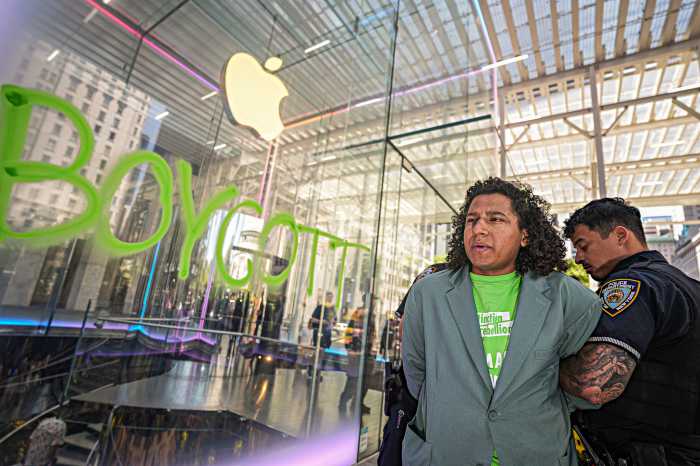By Matthew Wolfe
As Brooklyn prepares to go to the polls for the February 5 presidential primaries, a large segment of the borough’s citizens face a high hurdle: They don’t read English. Many non-English reading immigrants, advocates say, are kept from casting their ballot because materials printed in their native language are unavailable. In Brooklyn, official materials explain the process for registering and voting are available only in English, Spanish and Chinese. Yet, immigrant advocates say, this leaves out the great swathes of fully naturalized citizens that populate the borough’s many ethnic enclaves, including the Polish Community of Greenpoint, the West Indians of Flatbush, and Russian population of Sheepshead Bay, Brighton Beach and Bensonhurst. “A lot of immigrant communities aren’t as politically engaged as they might be,” said Alan Kaplan of the New York Immigration Coalition. “There are a lot of people who are foreign-born immigrants who have a hard time with the written word.” In 1965, Congress, citing unequal educational opportunities for certain minority groups that resulted in high English illiteracy, passed the Voting Rights Act which allowed for the provision of voting materials in languages other than English. However, the community must be of a certain size and also lack a certain level of the education. For a number of Brooklyn’s community’s, they do not quality. “The Russian community [in Brooklyn] is big enough,” said Kaplan, “But because their level of education is high enough, they don’t qualify.” Last year, Sen. Carl Kruger introduced legislation requiring voting materials to be available in Russian, but the bill was pulled from the agenda two days before the end of the legislative session in Albany. As part of a campaign to educate immigrants about the voting process, the New York Immigrant Coalition, an umbrella organization of immigrant advocacy and assistance groups made a concerted push this past winter to sign up recently naturalized immigrants. As part of the effort, the groups set up a table with information from different languages outside the United States District Court for the Eastern District of New York in Brooklyn, so that after immigrants were made citizens they could immediately register to vote. On January 10, the group presented over 2,000 signatures to the New York Board of Elections. Some critics say that the issue of non-English speaking immigrants is irrelevant because those who come to the country should be able to read English. In a press conference following the January 10 event, a heckler asked one of the speakers, Margaret Chin, Deputy Executive Director of Asian Americans for Equality, why the immigrants didn’t learn English. Chin agreed that while younger immigrants should be provided the educational opportunities necessary to learn English and about citizenship, the problem is particularly acute among the elderly, who may have a difficult time learning to read English if they emigrated late in life. “A good portion of elderly people would be very proud to exercise their freedom to vote,” said Vladimir Vishnevsky, a program director at the Edith and Carl Marks Jewish Community House of Bensonhurst. In the staged elections of the Soviet Union, “they were forced to vote,” said Vishnevsky. “But here, because they do not write English well, they’re prohibited from voting.” Vishnevsky also said that communism left a particular opinion about government with certain residents that even in a democracy is hard to shake. “Many of them have had this experience and now they think, ‘Why should I vote?” Vishnevsky said. “They need to understand that the system is different here.” While immigrants are the fastest growing part of the electorate, with several million more expected to register to vote in the 2008 presidential election than in 2004, their voting pattern are not so different from native voters. “Our exit polls show the issues are the same,” said Kaplan, who explained that immigrant citizens, as a group, hold similar political beliefs to those of similar economic status who were born in the country. Vishnevsky agreed, saying that the primary factor influencing Brooklyn immigrants is a better life for their children. “When it comes to having children’s health care they’re the same” said Vishnevsky. “They came here for the better education and health of their children.” This can even trump the interests of newly arrived immigrants. When the Russian community was faced last year with the question of driver’s licenses for illegal immigrants, the answer, Vishnevsky said, was a firm “Nyet.”






























